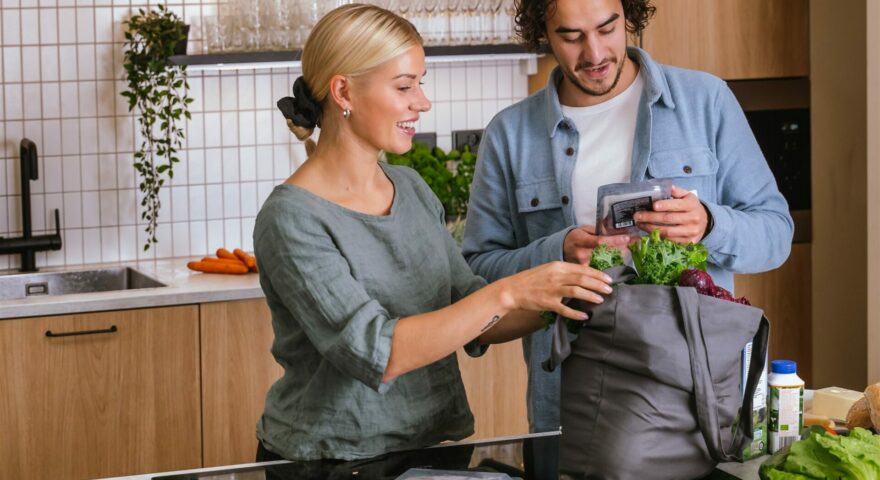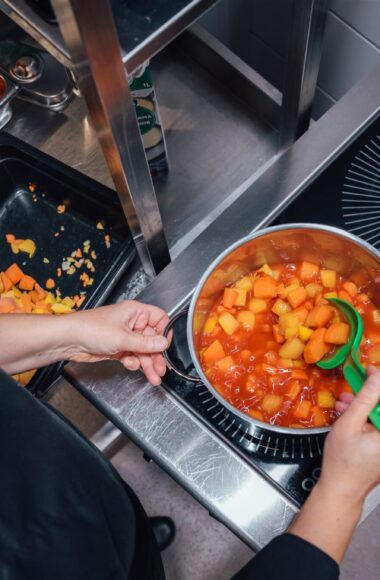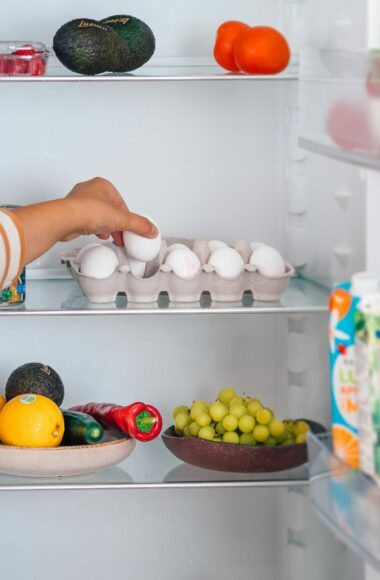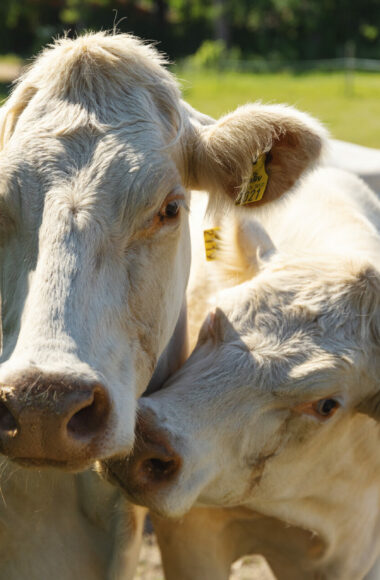Organic products were sold in grocery stores for 352 million euros in Finland in 2023, estimated by the The Finnish Organic Food Association Pro Luomu. Sales decreased by 6 percent from the previous year. The share of organic products in the total sales of grocery stores was about 1.9 percent.
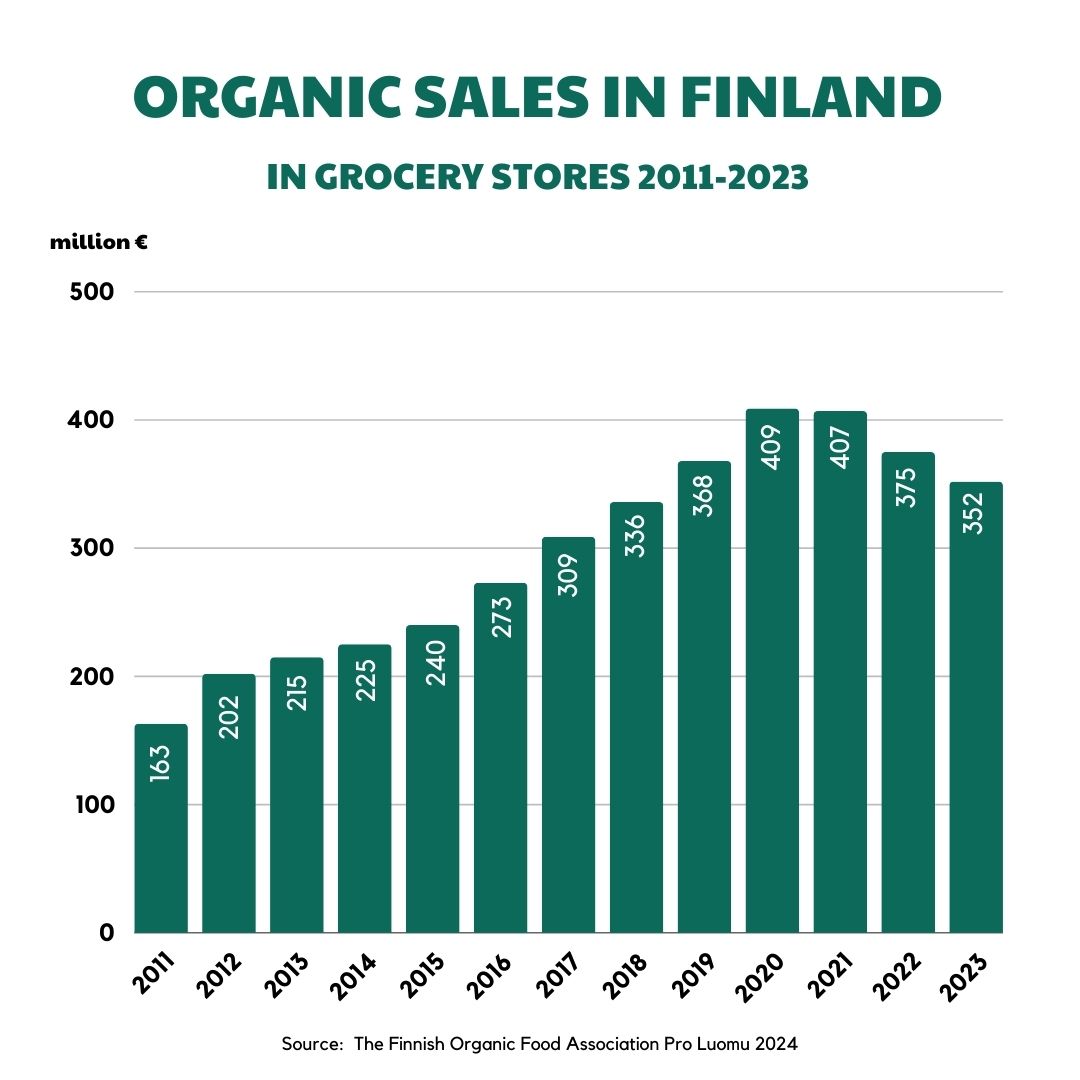
In 2023, consumer purchasing behaviour was driven by price, as in the previous year. Even though consumers intended to buy organic products as before, the impact of the rise in food prices on the contents of their shopping baskets was significant: 66% of Finns feel that it significantly affects what food they buy from the store. (Kantar Agri 2024.)
Families with children stand out among active consumers of organic products, meaning those who buy organic at least once a week, and especially they assess that the price increase has had a significant impact on their organic purchasing habits.
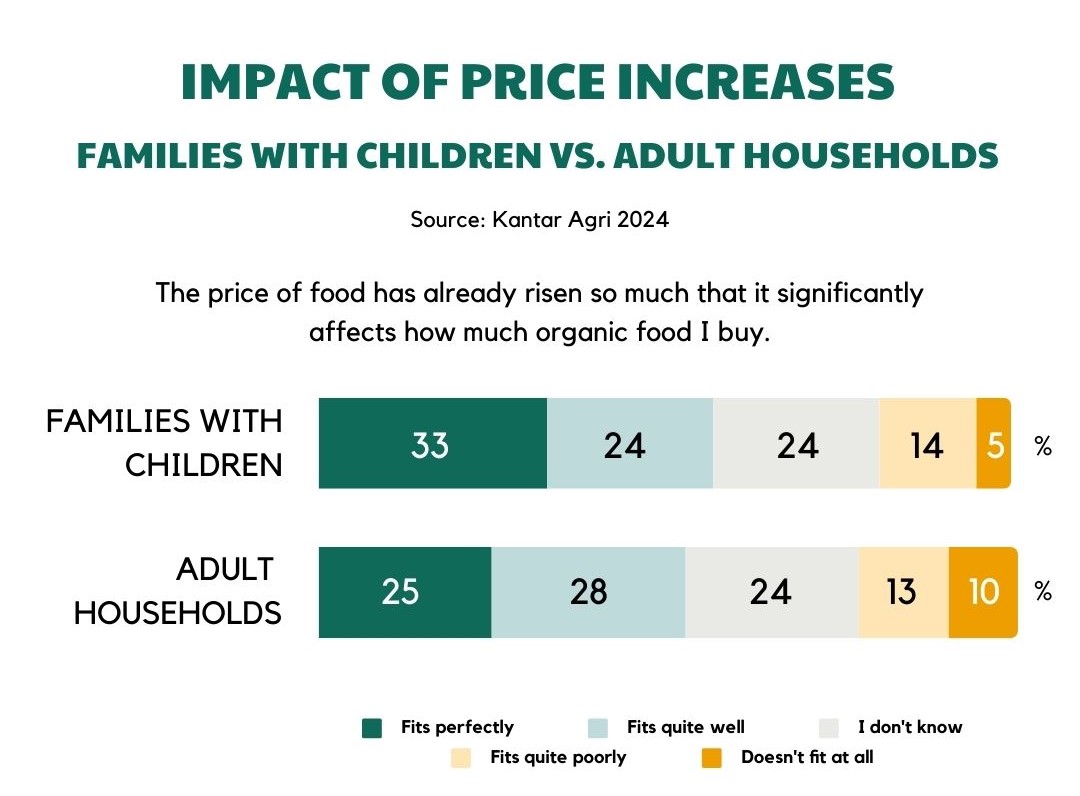
In two years, the price of food has risen by about a fifth. Towards the end of the year, the rate of price increase slowed down, and in some product categories, prices even decreased. However, for example, in grain and dairy products, the price increase continued at the end of the year. (PTT 1/2024). Also, consumer confidence in their own finances remained weak (Statistics Finland 1/2024).
Declines in large product categories, but some upturns too
Similarly to last year, the product category of organic baby food developed positively. Also, organic seasoning and preserves showed growth.
It was an exceptionally challenging year for organic snack products in the dairy section. Sales of fresh organic meat, organic meat products, as well as organic fruits and vegetables also declined significantly.
”Fruits and vegetables as well as milk are significant product categories in the organic market in Finland. If their market develops negatively, it clearly affects the overall market value,” says Aura Lamminparras, Executive Director of Pro Luomu.
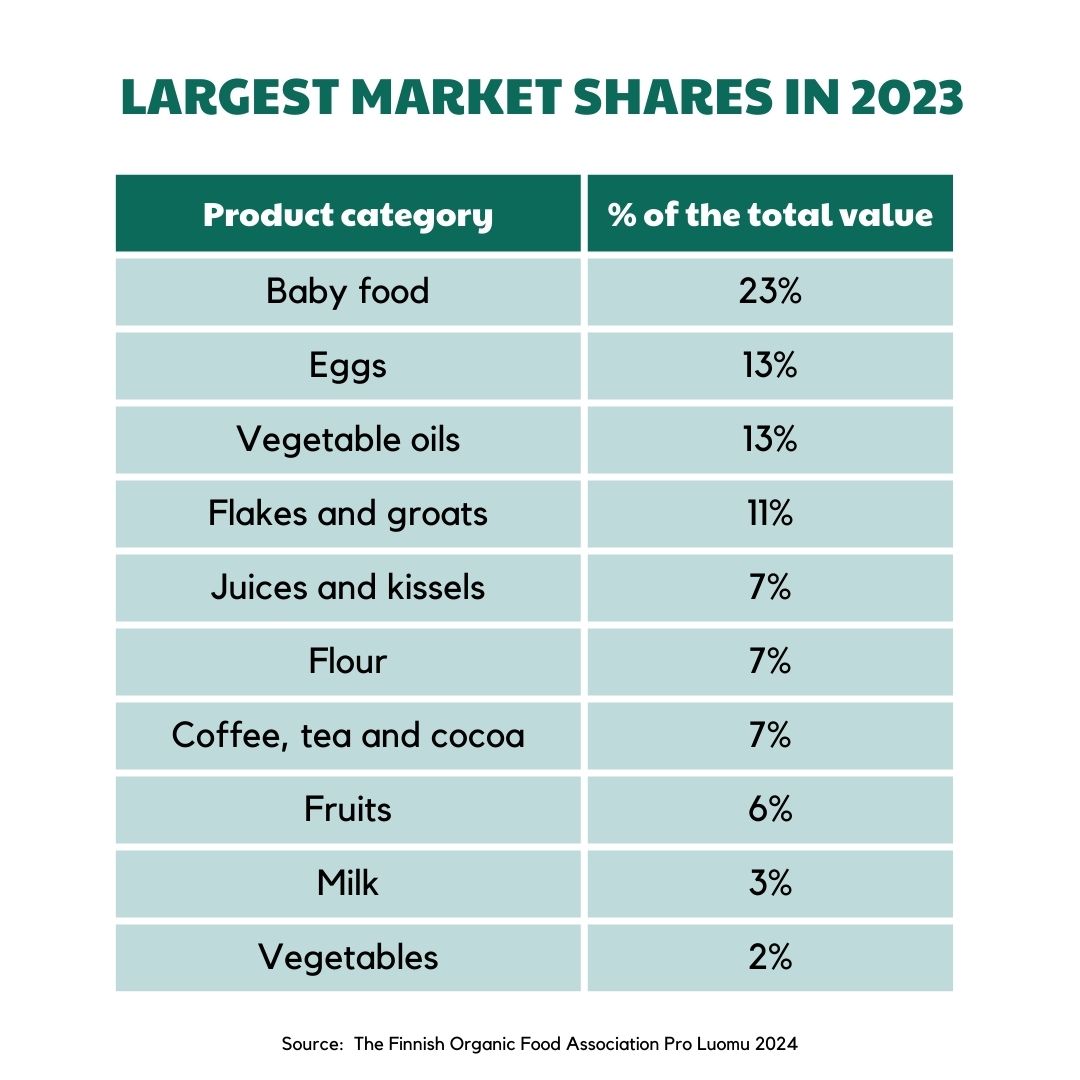
Finns trust organic
The Finnish perception of organic food remains very positive. Over half of Finns consider the EU organic label reliable and say it influences their purchasing decisions at least to a fairly significant extent.
Especially young adults (18–29 years old) trust the organic label and, for example, trust that organic farming positively affects animal welfare, biodiversity, and soil health.
Aura Lamminparras believes that organic products still have a place in the shopping baskets of consumers who value sustainability.
”We will receive information about the European organic market within a couple of weeks. Signs of recovery are already visible in some of the largest organic countries, and we expect that the same trend will be seen in Finland at some point,” explains Aura Lamminparras.
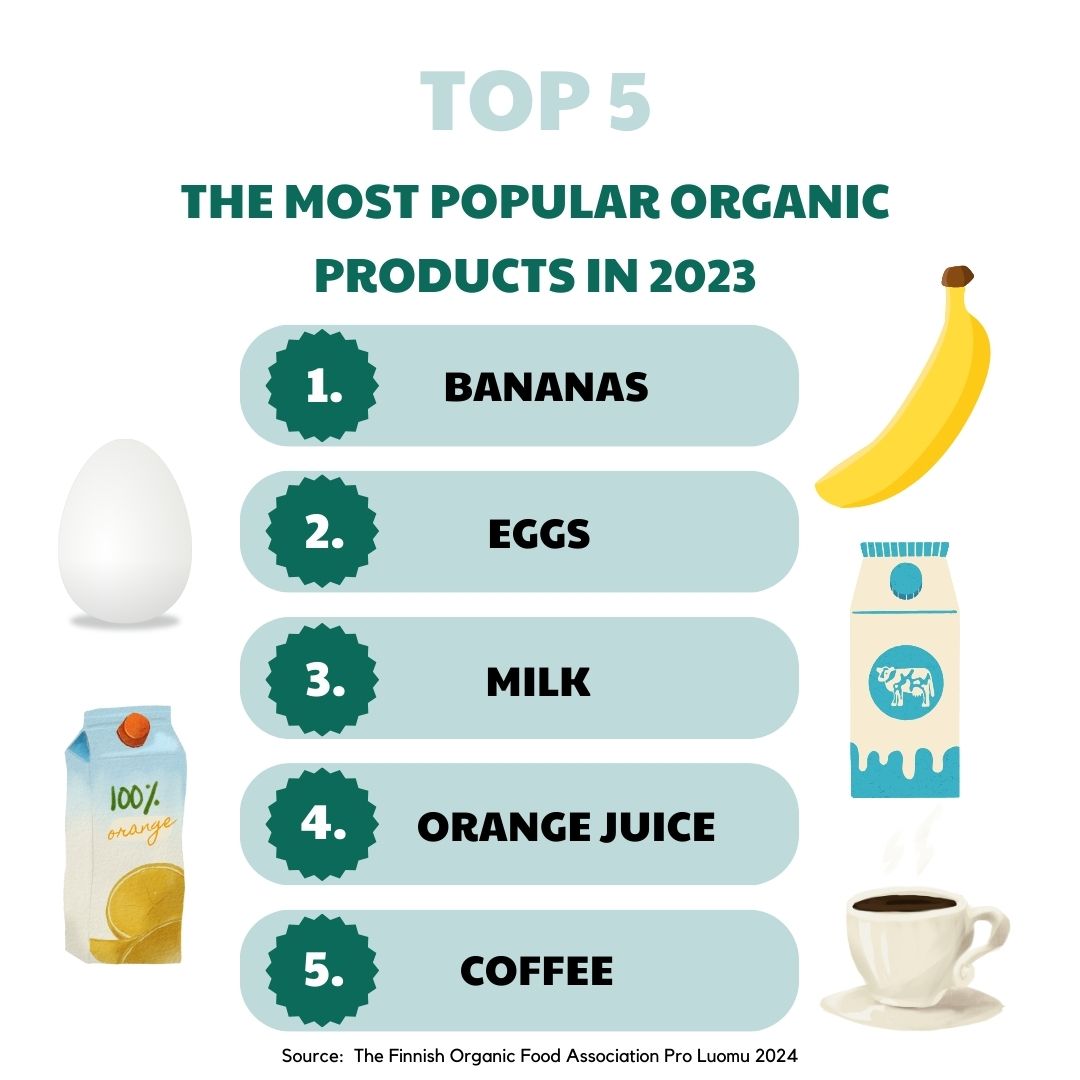
The estimate of organic sales is based on information collected from Pro Luomu’s retail groups.
Additional information:
Aura Lamminparras, Executive Director, Pro Luomu ry, tel. 040 556 8097, aura.lamminparras@proluomu.fi


Funded by the European Union. Views and opinions expressed are however those of the author(s) only and do not necessarily reflect those of the European Union or the European Research Executive Agency (REA). Neither the European Union nor the granting authority can be held responsible for them.


